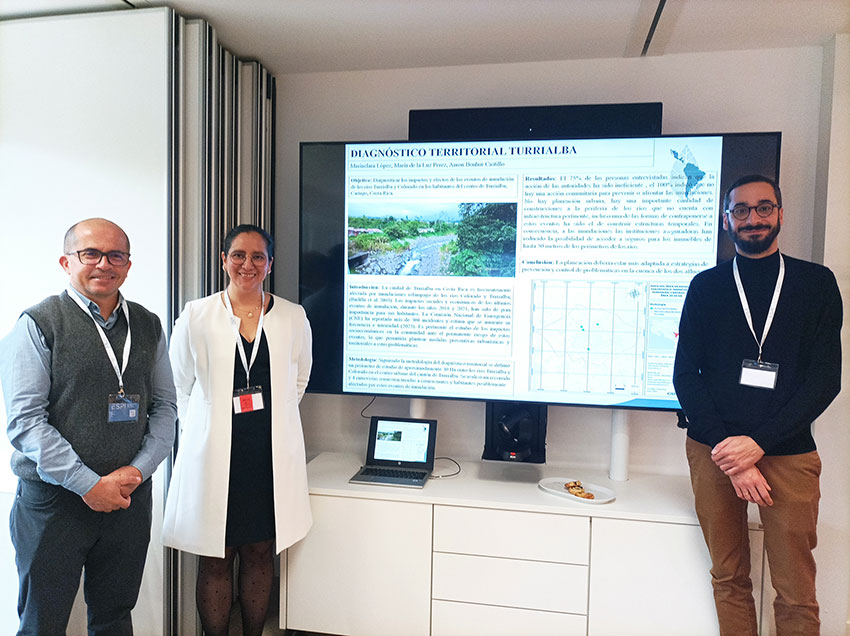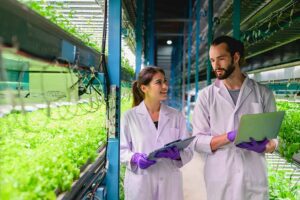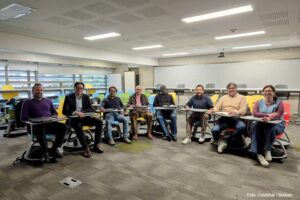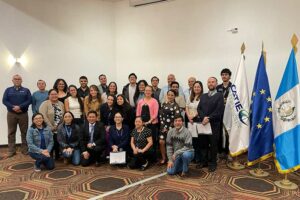CATIE Proposes Integration of Ecosystem and Economic Approaches in Urban Management in Paris

- Róger Madrigal Ballestero, Head of the Environmental Economics and Sustainable Agribusiness Unit (UEAAS/EfD) and leader of the project Mapping Environmental Protection Policies and Transport Infrastructure in Latin America (CENTRAAL), participated in an exclusive parallel session for the project to analyze its progress.
CATIE participated in the ESPI-IREC International Real Estate Conference, held in Paris, France, establishing itself as a key space for interdisciplinary dialogue on real estate transformations and urban management at global, regional, national, and local levels.
The event, held from November 26 to 28, 2024, brought together international experts from diverse disciplines, including environmental economics, law, climate risk management, urban planning, and architecture.
Representing CATIE was Professor Róger Madrigal Ballestero, Head of the Environmental Economics and Sustainable Agribusiness Unit (UEAAS/EfD) and leader of the project Mapping Environmental Protection Policies and Transport Infrastructure in Latin America (CENTRAAL).
This project is coordinated by the École Supérieure des Professions Immobilières (ESPI) in France and involves collaboration with academic institutions such as San Ignacio de Loyola University (USIL) in Peru, CATIE in Costa Rica, and strategic partners like SETEC and CEREMA.
CENTRAAL’s primary objective is to establish a multidisciplinary module for faculty exchange in Environmental Economics, Geography, and Ecology, creating a research network that incorporates biodiversity and ecosystem services into infrastructure development in urban areas of Latin America.
As part of the ESPI conference, Professor Madrigal participated in an exclusive parallel session for CENTRAAL to review the project’s progress alongside international researchers. He also highlighted a significant milestone for the project: in July of this year, CATIE offered a hybrid course titled “Environmental Policies and Transport Infrastructure: Tools and Case Studies in France and Latin America.”
Academic Contribution
During the course, CATIE students developed territorial diagnostics addressing flood-related issues in downtown Turrialba from perspectives such as climate risk management, urban planning, community organization, and political decision-making. These projects were presented at the conference through three posters, sparking great interest among participants for their innovative approach and technical content.
Professor Madrigal stated: “The diagnostics carried out by the students demonstrate how biodiversity and ecosystems can be integrated into urban planning, addressing specific challenges such as flooding from multiple perspectives.”
New Collaborations
CATIE’s participation in the ESPI conference not only reinforced the impact of CENTRAAL but also opened opportunities to strengthen international collaborations. This includes the development of a second phase of the project, which promises to expand its scope and generate greater benefits for urban communities in Latin America.
CATIE’s presence at international events like ESPI reaffirms its commitment to integrating ecosystem and economic approaches to tackle 21st-century urban challenges, solidifying its role as a leader in research and education for sustainable development.
More information:
Róger Madrigal-Ballestero
Head, Environmental Economics and Sustainable Agribusiness Unit
rmadriga@catie.ac.cr
Written by:
Esteban Rodríguez Zamora
Communicator
Information Technology and Communication
CATIE
esteban.rodriguez@catie.ac.cr



